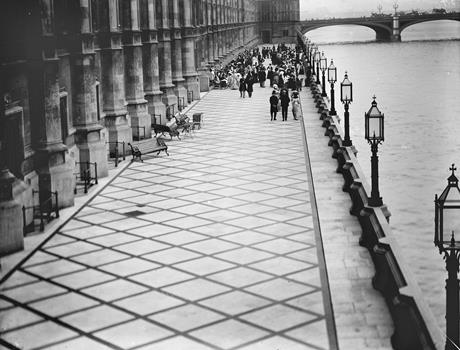The Books of To-day and the Books of To-morrow, September 1907
The Ruling Passion.
IN THE MILLINERY TRADE.
THERE was a young person at Jay’s
Who was seized by the Limerick craze.
Hope deferred made her skinny;
But she’s just won a guinea,
And now takes an out-size in stays.
IN THE HOUSE.
A get-wealthy-quickly M.P.
Used to send in his weekly 6d.
He would spend all his time
Hunting hard for a rhyme,
While his friends on the Terrace took tea.
IN THE CITY.
There was a young man of Mark Lane
Who shot himself right through the brain,
On failing again,
And again, and again,
And again, and again, and again.
ON THE LINKS.
There was once a golfer who swore,
‘I will find a rhyme to Skiddaw!’
He’s abandoned the links,
Smokes excessively, drinks,
And his handicap’s now eighty-four.
IN THE SMART SET.
A Duchess was heard to exclaim,
‘My powers of rhyming are tame:
My scansion is weak:
My ideas are to seek:
But I may get a prize on my name.’
CRUELTY TO INFANTS.
A father in far County Down
Is the talk of the whole native town.
Absentmindedly, maybe,
He’s christened his baby
James Missing Line Limerick Brown.
Printed unsigned; entered by Wodehouse in Money Received for Literary Work.
Notes:
Some London weekly newspapers at the time were conducting “complete this unfinished limerick” competitions as part of their fierce competition for readership. An editorial in The Sphere, October 9, 1907, denounced the “craze which must be doing a great deal of harm to large masses of people”; one paper boasted of receiving 169,000 coupons for a single competition, and critics questioned whether such masses of entries could be fairly judged, asking whether the “competitions” were really lotteries with prizes awarded by chance. Punch noted that one winner’s address was the London County Asylum; “comment would be superfluous.”
Jay’s at 247–249 Regent Street, London, was a shop of milliners and dressmakers who specialized in black garments for mourning; they supplied mourning wear to Queen Victoria.
A guinea was a unit of monetary account, not a coin, equal to one pound and one shilling (21 shillings). Prices for many professional services and fashionable or luxury goods were commonly quoted in guineas. This was apparently one of the minor prizes in the competition; some major winners were awarded prizes of £100 or more.
 stays: the stiffening ribs in a corset, or the corset itself
stays: the stiffening ribs in a corset, or the corset itself
M.P.: Member of Parliament
6d: sixpence, pronounced “six-d” here
Terrace: a paved area on the Thames side of the Houses of Parliament, historically open to Members and their invited guests for tea.
City: The original settled area of London from Roman times, home to most of its financial firms; now often used as a reference to the financial sector just as “Wall Street” is used for New York’s finance industry.
Mark Lane: a short street in the City, formerly home of the Corn Exchange where all sorts of grain contracts were traded.
Skiddaw: a mountain in England’s Lake District, the sixth-highest peak in England, just north of Keswick, Cumbria.
handicap’s now eighty-four: in other words, he now takes roughly twice as many strokes as a typical good golfer.
County Down: easternmost of the six counties now in Northern Ireland
—Notes by Neil Midkiff
 Madame Eulalie’s Rare Plums
Madame Eulalie’s Rare Plums